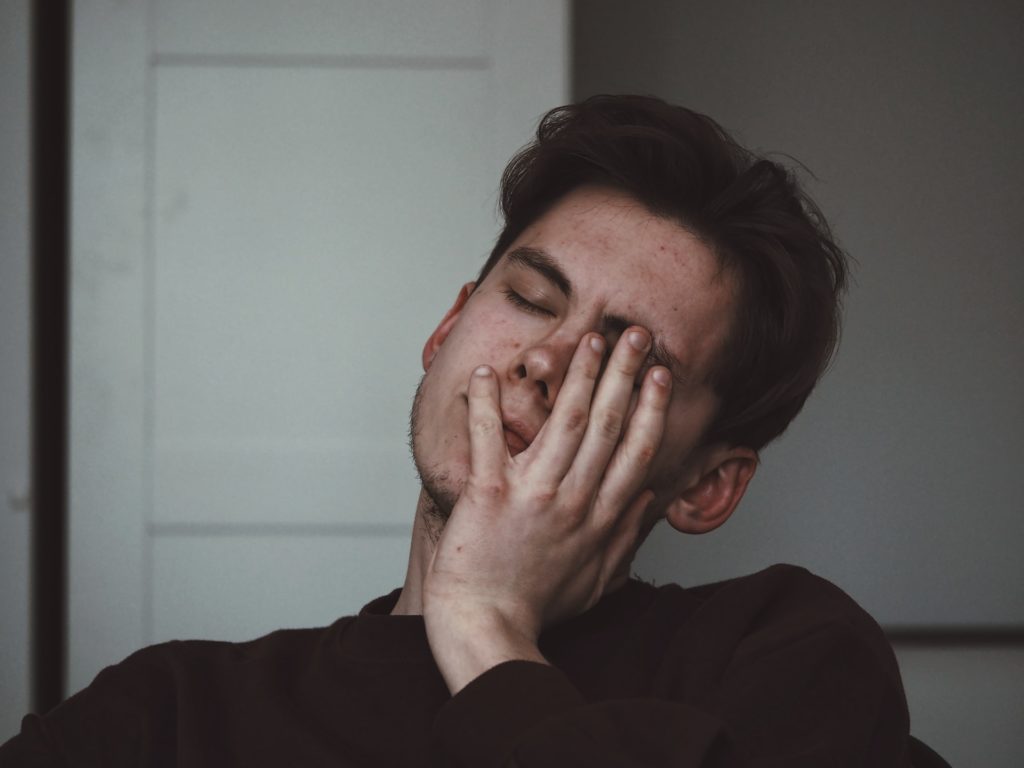What Is Sleep Apnea?
Sleep apnea is a sleep disorder in which you repeatedly stop and start to breathe. It is a potentially serious disorder and shouldn’t be ignored.
If left untreated, sleep apnea causes daytime tiredness, heart trouble, and even high blood pressure along with loud snoring. If you wake up in the morning and feel tired even though you’ve slept for 8 hours, you might have this disorder.
What Are The Types Of Sleep Apnea?
There are three types of sleep apnea –
Obstructive Sleep Apnea
This is the most common type of disorder. It occurs when your airways are repeatedly partially or completely blocked while you are sleeping. The blockage happens because of the collapse of the soft tissue at the back of your throat.
When the soft tissue collapses, the diaphragm and chest muscles have to work harder than usual to open up the airways. A person suffering from obstructive sleep apnea will start to breathe by jerking their body or with loud gasps.
This entire episode affects not only your sleep but also lowers the oxygen flow to the vital organs. This, in turn, can cause an abnormal heart rhythm.
Central Sleep Apnea
Your airway doesn’t get blocked if you have this type. Instead, your brain fails to communicate with your respiratory muscles due to issues in the respiratory control center. Which is why you fail to breathe.
CSA usually happens in people –
- With neuromuscular disorders such as ALS
- Who has had a stroke
- Have some form of heart, lung, or kidney disease
Complex Sleep Apnea
Doctors call this type “treatment-emergent” central sleep apnea. This happens if you have both obstructive and central sleep apneas.
What Are The Symptoms Of Sleep Apnea?
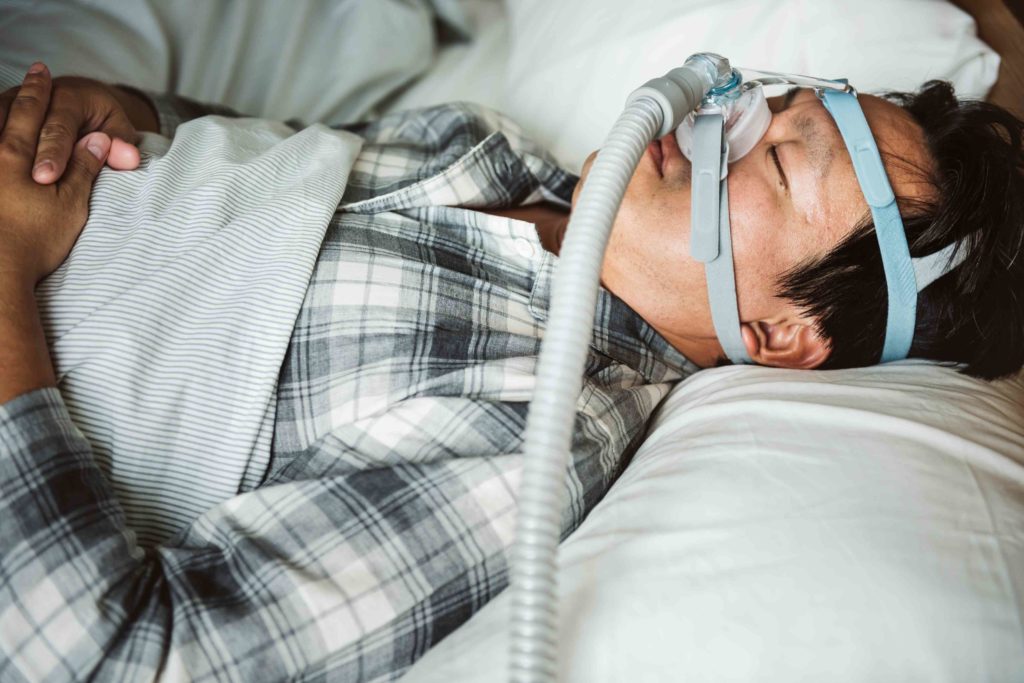
People with apnea sleeping disorder don’t notice the first symptoms themselves. Your partner usually notices them and will tell you. The most common symptoms and signs include –
- Loud snoring
- Sleepiness or fatigue in the day
- Regular waking up in the middle of the night
- Restlessness while sleeping
- Sore throat or a dry mouth on waking up
- Waking up after choking or gasping
- Forgetfulness, trouble concentrating, crankiness
- Anxiety or depression
- The constant need to use the loo at night
- Sexual dysfunction
- Night sweats
- Headaches
What Aggravates Sleep Apnea?
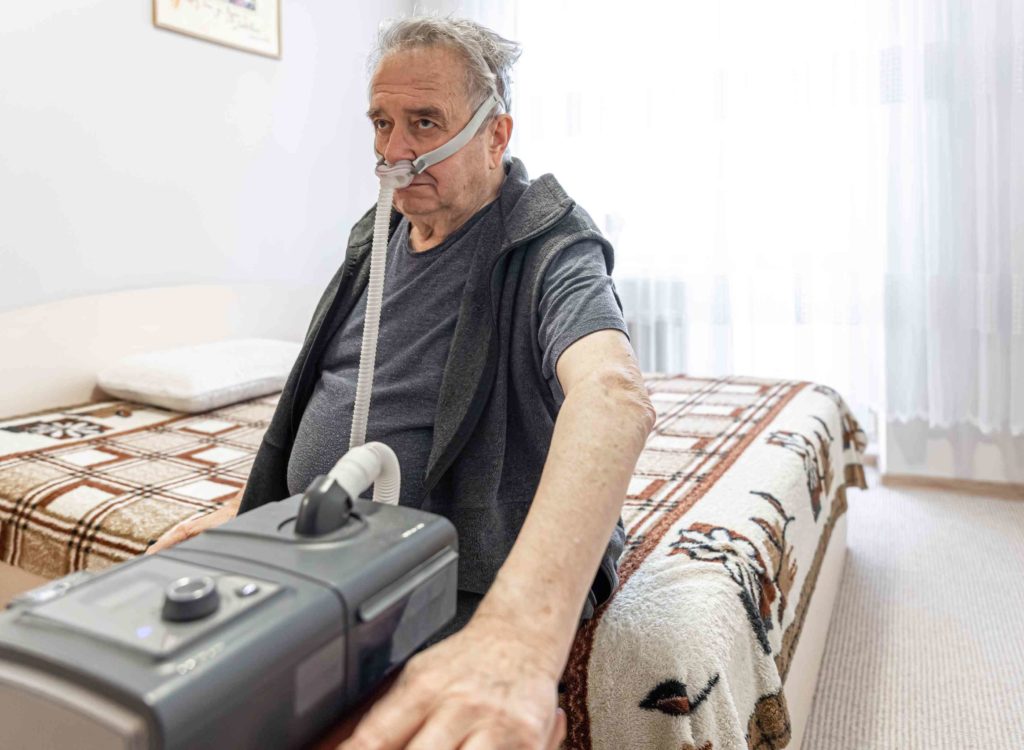
While this condition can affect anyone, you are at a higher risk of having sleep apnea if your condition is–
- Overweight
- Large neck – this could make the airways narrower
- Airway is narrowed due to genetics or due to large adenoids or tonsils
- Male
- Older
- Family has a history of sleep apnea
- Smoking
- Frequent use of sedatives or tranquilizers
- Alcohol consumption
- Nasal congestion
- Medical disorders like type II diabetes, high blood pressure, congestive heart failure, PCOS, Parkinson’s disease, asthma, etc.
What Are Permanent Treatments For Sleep Apnea?
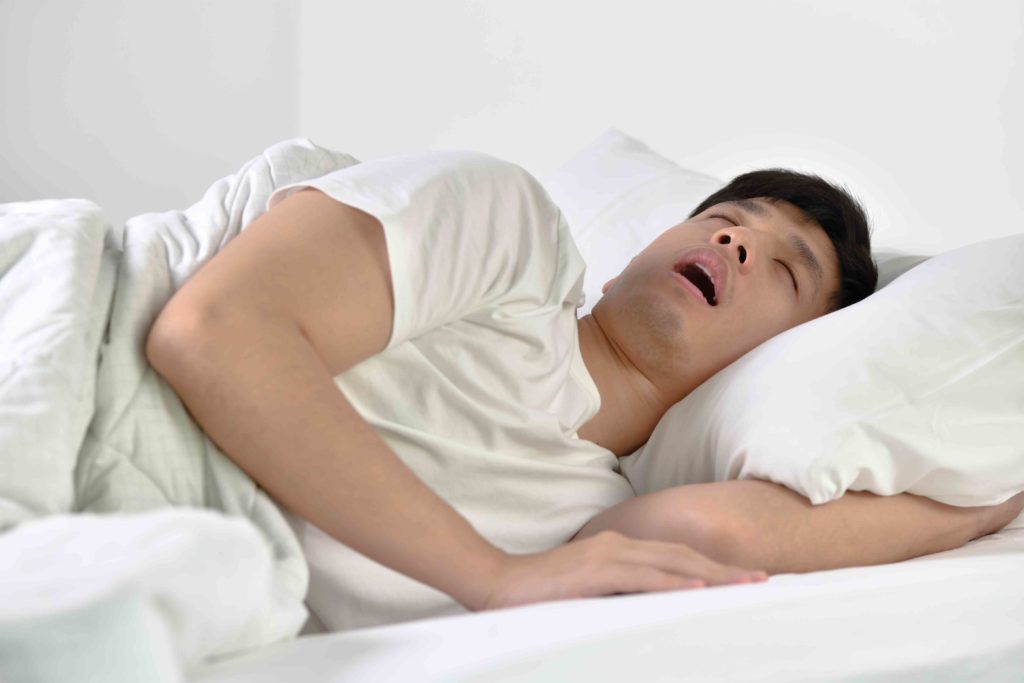
Conservative Treatments
Doctors go down the conservative route if the patient suffers from mild forms of apnea.
- Weight reduction is one of the conservative treatments. However, this can be tricky since sleep apnea causes an increased appetite along with metabolic changes.
- Patients with obstructive sleep apnea are advised against the use of alcohol and sleeping pills. The use of the two can lead to prolonged apneic periods.
- In some patients, obstructive problem only occurs when they sleep on their backs. They are advised to sleep on their side. Using a wedge pillow helps.
- Patients with nasal congestion or sinus issues are recommended to use breathing strips or nasal sprays. This helps improve airflow and prevent snoring.
Mechanical Therapy
For patients with moderate to more severe forms of the disorder, mechanical therapies are involved. Positive Airway Pressure – or PAP therapy – is the preferred mode of treatment for people with obstructive sleep apnea.
PAP therapy involves the use of an air blower in which the pressure is adjusted so it prevents the airways from collapsing during sleep. There are several types of PAP devices –
- CPAP – Continuous Positive Airway Pressure – is the most popular. The machine is set at a single pressure.
- Bi-Level PAP has one pressure when the person breathes in and a lower pressure when they breathe out.
- Auto Bi-Level PAP or Auto CPAP uses a self-regulating range of pressures as detected by the machine.
- Adaptive Servo-Ventilation is a non-invasive type of ventilation used in patients with central sleep apnea.
Mandibular Advancement Device
For patients with mild to moderate forms of obstructive problem. These are dental appliances that prevent the tongue from blocking the throat. These can also advance the mandible (lower jaw) forward, keeping the airway open during sleep.
Hypoglossal Nerve Stimulator
A hypoglossal nerve stimulator is a device that is implanted underneath the skin. This is turned on with a remote control when the patient is about to go to sleep. The device stimulates the hypoglossal nerve with each breath, moving the tongue out of the airway to keep it open.
Surgery
Surgical procedures are performed if all of the other treatments fail. Surgical intervention includes –
- Removal of enlarged adenoids or tonsils
- Repositioning of the jaw
- Reduction of soft tissue
- Nasal surgery (to correct a deviated septum)
Does The Dentist Near Me Help With this problem?
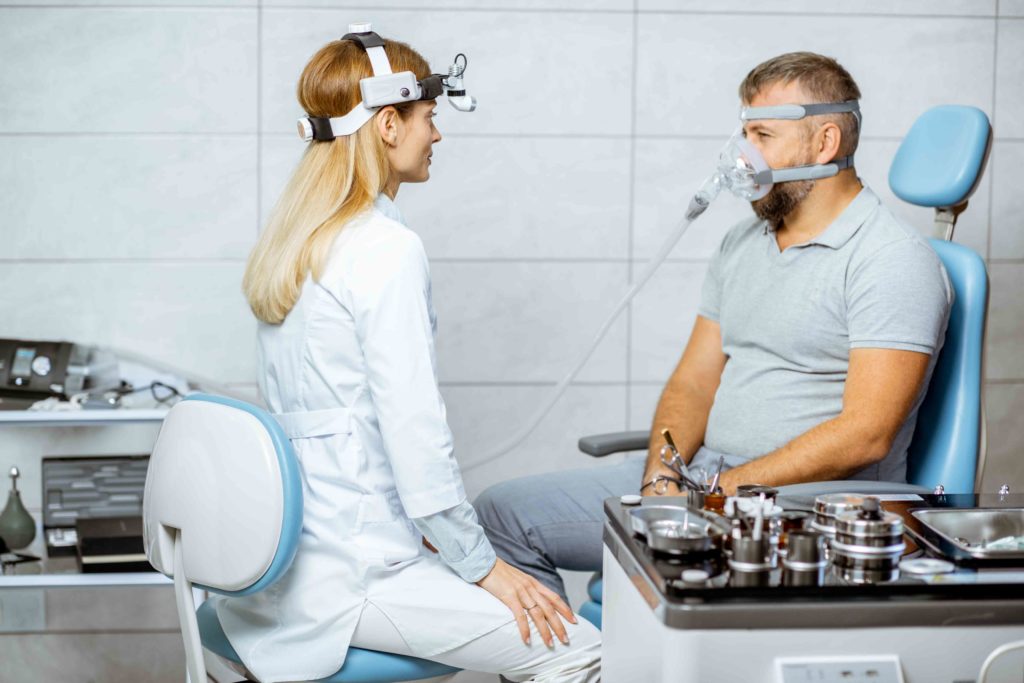
Osseo Family Dental is glad to announce that we do offer oral appliances that help with obstructive problem. So, if you or your partner have noticed the signs and symptoms, head down to our dental office to assess and diagnose your condition.
For patients with mild to moderate obstructive problem, Osseo Dental custom makes oral devices. These help keep your airway open by preventing your tongue from closing the throat. Besides, the oral sleep device also helps in breathing by moving the mandible forward.
Dr Marquis will be more than happy to assist you in your sleep apnea journey.
To understand more about how an oral appliance will help you sleep better, give Osseo Family Dental a call. Dial (763) 425-2626 to schedule an appointment.

